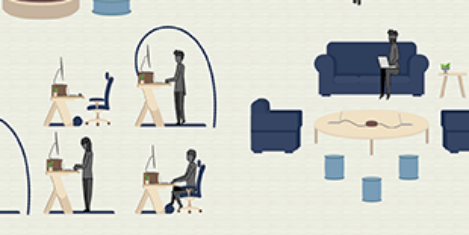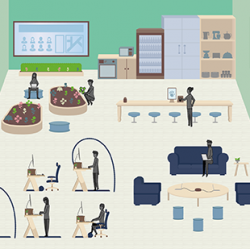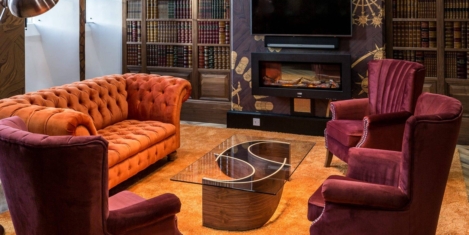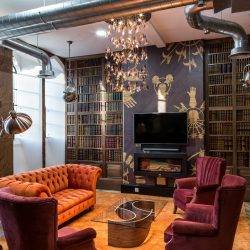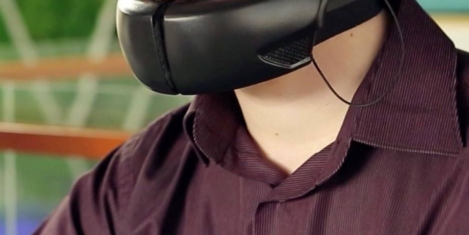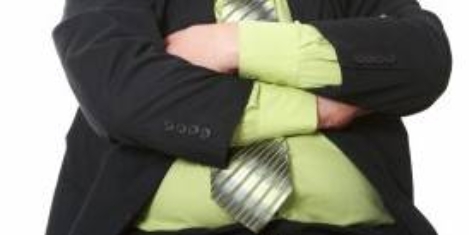April 27, 2017
Overbury delivers new head office for iconic British brand Fred Perry 0
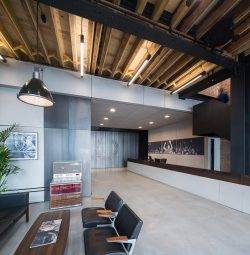 Fit out firm Overbury has completed the interiors of a new head office and showroom for iconic British brand Fred Perry in Clerkenwell, London. The refurbishment of 27,000 sq ft in a historic Victorian warehouse supports Fred Perry’s move from its long-term address in Covent Garden to a fashionable corner of London. In 2015, the company leased two 19th century warehouse buildings on the corner of Mount Pleasant and Warner Street, opposite a former Royal Mail Sorting Office. Working with architects Buckley Gray Yeoman, Overbury delivered the fit out of seven floors, which included the installation of new floors, ceilings, walls and mechanical and electrical systems. Following a four month programme, the result is a space that reflects the brand’s British identity and brings the brand’s head office and showroom under one roof.
Fit out firm Overbury has completed the interiors of a new head office and showroom for iconic British brand Fred Perry in Clerkenwell, London. The refurbishment of 27,000 sq ft in a historic Victorian warehouse supports Fred Perry’s move from its long-term address in Covent Garden to a fashionable corner of London. In 2015, the company leased two 19th century warehouse buildings on the corner of Mount Pleasant and Warner Street, opposite a former Royal Mail Sorting Office. Working with architects Buckley Gray Yeoman, Overbury delivered the fit out of seven floors, which included the installation of new floors, ceilings, walls and mechanical and electrical systems. Following a four month programme, the result is a space that reflects the brand’s British identity and brings the brand’s head office and showroom under one roof.





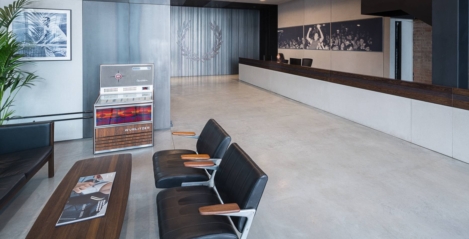



 A major research study into Health and Wellbeing in offices has been launched by the British Council for Offices (BCO). “Wellness Matters: Health and Wellbeing in offices and what to do about it” is a year-long project which aims to provide definitive guidance on how to enable office Health and Wellbeing across a building’s lifecycle. The major research study has been commissioned to critique existing Health and Wellbeing measurement and certification, identify the most recent and relevant medical evidence justifying a proactive approach to Health and Wellbeing in the built environment, and give guidance on the business case for investment in this space beyond simply improving productivity. Most significantly, this research aims to deliver a practical guide to creating a healthy environment across the different stages of a building’s life cycle, from design, construction and leasing to the most important aspect by time and value: occupation and asset management.
A major research study into Health and Wellbeing in offices has been launched by the British Council for Offices (BCO). “Wellness Matters: Health and Wellbeing in offices and what to do about it” is a year-long project which aims to provide definitive guidance on how to enable office Health and Wellbeing across a building’s lifecycle. The major research study has been commissioned to critique existing Health and Wellbeing measurement and certification, identify the most recent and relevant medical evidence justifying a proactive approach to Health and Wellbeing in the built environment, and give guidance on the business case for investment in this space beyond simply improving productivity. Most significantly, this research aims to deliver a practical guide to creating a healthy environment across the different stages of a building’s life cycle, from design, construction and leasing to the most important aspect by time and value: occupation and asset management.
 London’s office workers are looking for shorter commutes, demanding more collaborative and networking opportunities while at work and better access to green space, retail, leisure and wellness; all of which could present a huge opportunity for the less congested outer London boroughs, a new report suggests. According to Savills latest London Mixed Use Development Spotlight, as employers and employees alike demand more from their workplace and their work- life balance, London’s outer boroughs could reap the benefits by providing greater flexible office space and affordable homes at a variety of price points. According to Oxford Economics, employment in sectors that tend to occupy co-working spaces is set to rise by 20,000 people in the outer London boroughs over the next five years, which equates to a gross additional need of 1.6 million sq ft (148,644 sq m) of office space.
London’s office workers are looking for shorter commutes, demanding more collaborative and networking opportunities while at work and better access to green space, retail, leisure and wellness; all of which could present a huge opportunity for the less congested outer London boroughs, a new report suggests. According to Savills latest London Mixed Use Development Spotlight, as employers and employees alike demand more from their workplace and their work- life balance, London’s outer boroughs could reap the benefits by providing greater flexible office space and affordable homes at a variety of price points. According to Oxford Economics, employment in sectors that tend to occupy co-working spaces is set to rise by 20,000 people in the outer London boroughs over the next five years, which equates to a gross additional need of 1.6 million sq ft (148,644 sq m) of office space.

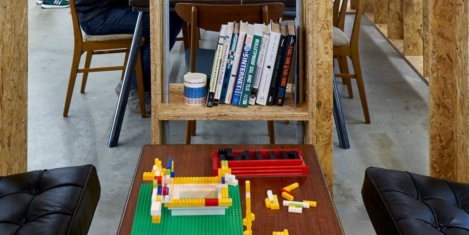
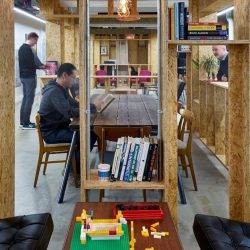
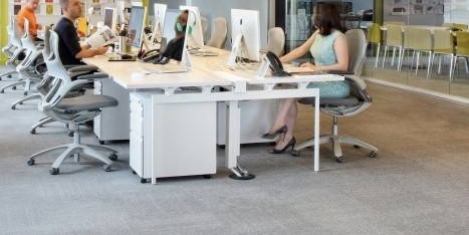
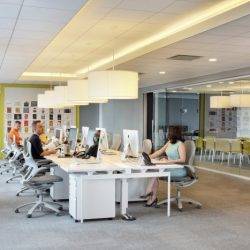

 The majority (79 percent) of workers say reliable and modern technology is more important to them than office aesthetics, while accessories such as ping pong tables, slides, hammocks and wacky office designs may look good in pictures, but they don’t necessarily make employees any happier or productive. The is according to a survey, conducted by storage firm Kiwi Movers, which found that 86 percent of UK adults who work in an office said fun features were of no specific value to their working life, 11 percent said they were nice-to-have and of some value and 3 percent said they were very valuable. The most popular office perks are those offer an immediate tangible benefit to the employee, but even so, as many as 23 percent don’t take advantage every day; while 71 percent overall said they’d like more space in their office and of those, 58 percent believe that could be achieved by removing non-essential items. The research also found that younger workers were more likely on average to take advantage of ‘environmental’ perks like chill out areas and recreational equipment.
The majority (79 percent) of workers say reliable and modern technology is more important to them than office aesthetics, while accessories such as ping pong tables, slides, hammocks and wacky office designs may look good in pictures, but they don’t necessarily make employees any happier or productive. The is according to a survey, conducted by storage firm Kiwi Movers, which found that 86 percent of UK adults who work in an office said fun features were of no specific value to their working life, 11 percent said they were nice-to-have and of some value and 3 percent said they were very valuable. The most popular office perks are those offer an immediate tangible benefit to the employee, but even so, as many as 23 percent don’t take advantage every day; while 71 percent overall said they’d like more space in their office and of those, 58 percent believe that could be achieved by removing non-essential items. The research also found that younger workers were more likely on average to take advantage of ‘environmental’ perks like chill out areas and recreational equipment.